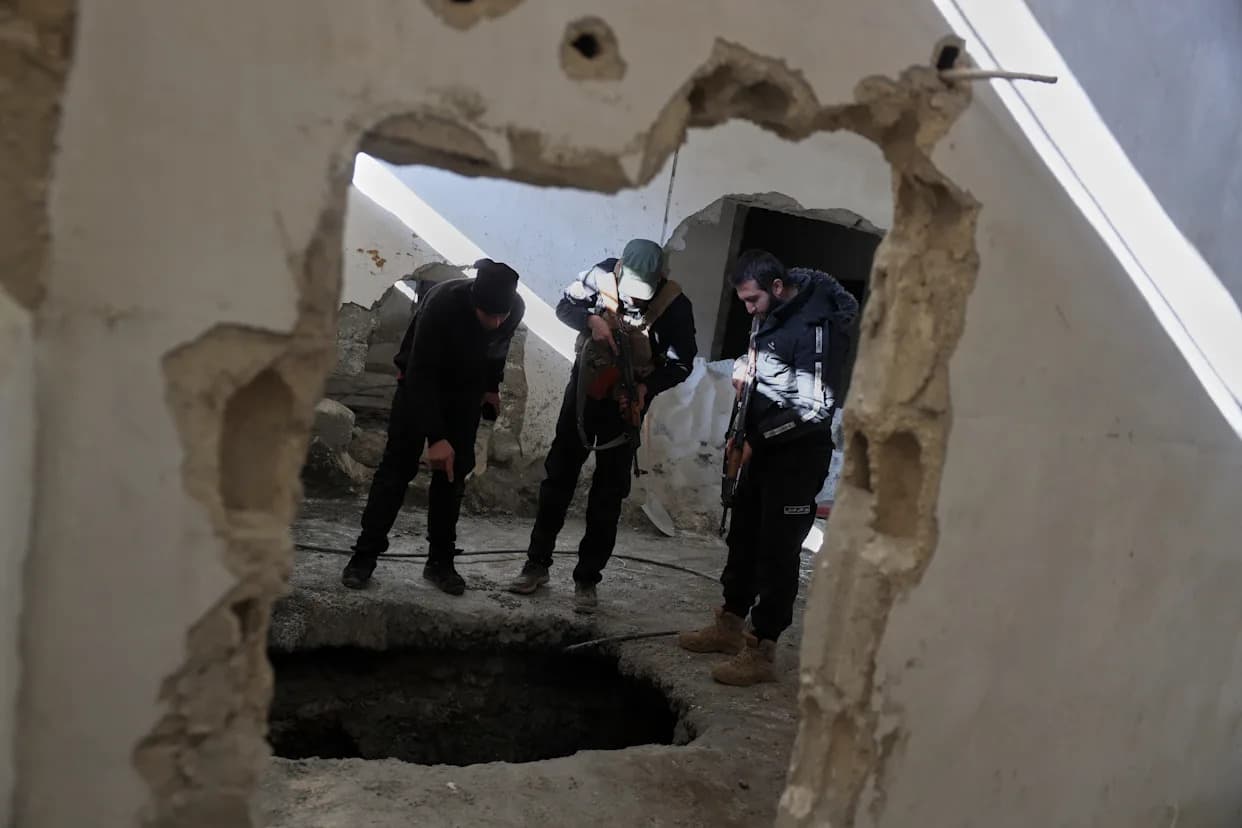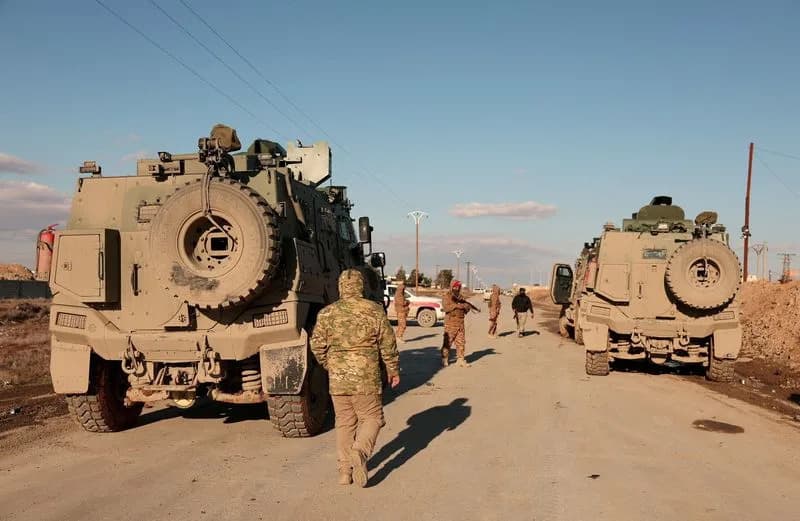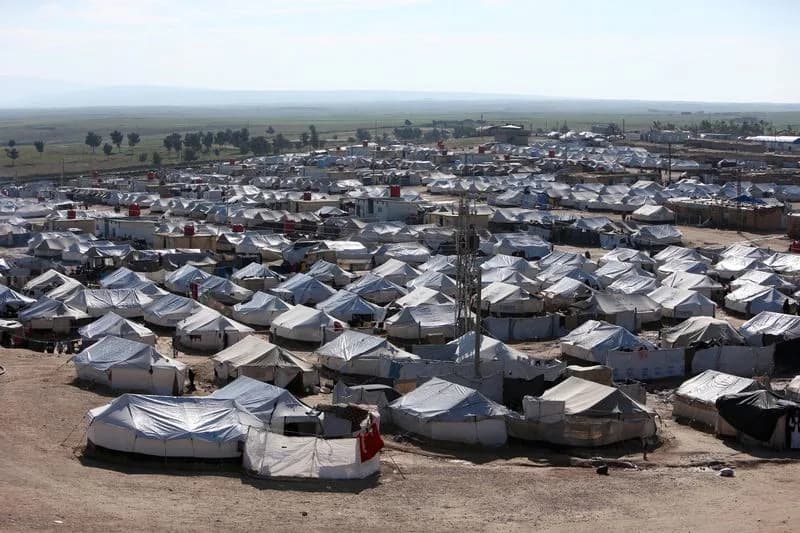Syria has told U.S. officials it will join the international coalition against Islamic State, but will not participate in the U.S.‑led military mission, Syrian Information Minister Hamza al‑Mustafa said after President Ahmad al‑Sharaa’s visit to Washington. The trip — the first White House visit by a Syrian head of state since 1946 — also sought relief from U.S. sanctions and addressed ongoing talks with Israel. U.S. Central Command reported 311 IS attacks in Syria and 64 in Iraq so far this year, down from 878 and 160 in 2024.
Syria to Join Global Anti‑IS Coalition but Declines to Join U.S.‑Led Military Mission

Syria to Join International Anti‑IS Coalition, But Not the U.S. Military Campaign
BEIRUT — A Syrian official said Tuesday that Damascus has agreed in principle to join the international coalition fighting the Islamic State group during President Ahmad al‑Sharaa’s landmark visit to Washington, but stressed Syria will not participate in the U.S.‑led military mission against the extremists.
Syrian Information Minister Hamza al‑Mustafa told reporters by phone that al‑Sharaa met with U.S. President Donald Trump and expressed Damascus’ “desire, intentions and readiness” to join the 89 other countries that make up the coalition. Al‑Mustafa added that no formal, signed agreement has yet been completed.
“The political coalition is different from Operation Inherent Resolve, which is a military operations room,” al‑Mustafa said, distinguishing Syria’s political support from participation in the U.S.‑led military campaign that has partnered with Iraqi security forces and the Kurdish‑led Syrian Democratic Forces.
U.S. officials have not publicly confirmed a formal entry into the coalition. A senior U.S. administration official, speaking on condition of anonymity because there had been no formal announcement, told reporters that Syria had formally confirmed its intention to join the global coalition after the White House meeting.
Although the Islamic State no longer holds the territory it once controlled in Iraq and Syria, small IS cells continue to mount attacks. U.S. Central Command reported 311 IS attacks in Syria and 64 in Iraq so far this year, compared with 878 attacks in Syria and 160 in Iraq in 2024.
Al‑Sharaa’s visit marked the first time a Syrian head of state has visited the White House since Syria’s independence from France in 1946. Beyond coalition membership, the visit focused heavily on economic and diplomatic issues, including a push for permanent repeal of U.S. sanctions imposed under the Caesar Act. President Trump has renewed a waiver of those sanctions for six months, but permanently lifting them would require action by Congress.
Talks between Syria and Israel were also on the agenda. Al‑Mustafa said negotiations are ongoing but there is “nothing new regarding the possibility of reaching a security agreement.” He reiterated that full normalization similar to the U.S.‑brokered Abraham Accords is not under consideration while Israeli forces occupy territory Syria deems its own, and he called for a return to the 1974 disengagement arrangement or another agreement that secures withdrawal from territory captured after Dec. 8.
Implications: Syria’s stated decision to join the political coalition could improve diplomatic ties with Washington and other partners, while stopping short of military cooperation reduces the risk of escalation and keeps a clear separation between political alignment and participation in Operation Inherent Resolve.
Help us improve.



























